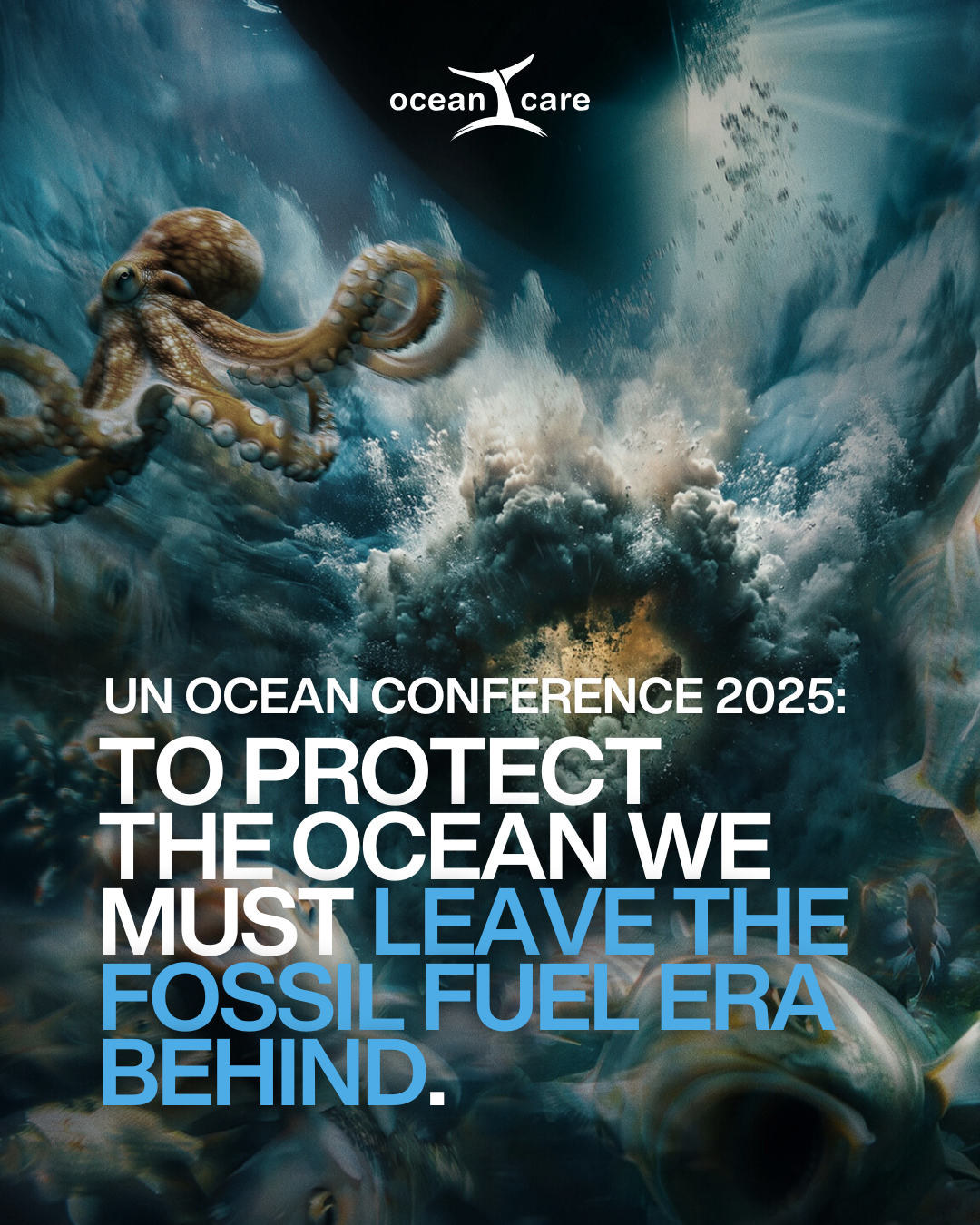Global Call on Governments to Commit Banning Offshore Fossil Fuel Exploration at UN Ocean Conference
- More than 100 civil society organisations from around the world are calling on governments to immediately ban any exploration for oil and gas in the Ocean and to phase out offshore drilling for fossil fuels consistent with the Paris Agreement.
- The letter comes at a crucial time, with growing recognition that a healthy ocean is crucial for the earth’s climate regulation.
- The UN Ocean Conference in June 2025 presents a key opportunity to agree on critical conservation measures towards resilient and healthy marine ecosystems fit for climate protection.

This week, a coalition of more than 100 environmental organisations - including Coalition Clean Baltic (CCB) - from six continents has published an open letter calling on governments to include a commitment to ban the search for new oil and gas deposits in the seabed and phase out existing extraction in the final declaration of the Third UN Ocean Conference (UNOC3). The conference, scheduled for June 2025 in Nice, France, represents a critical opportunity to advance both ocean protection and climate action.
The diverse coalition – including marine conservation organisations, climate justice groups, and environmental NGOs from both the Global North and South – emphasises that continuing to explore for new hydrocarbon reserves is incompatible with meeting international climate goals and protecting marine ecosystems.
The letter highlights how billions of dollars continue to be invested in seabed exploration for oil and gas, even within marine protected areas, despite scientific evidence pointing to the urgent need to halt new fossil fuel development. The search for new deposits involves seismic surveys using powerful airguns that produce some of the loudest human-made sounds in the ocean, causing widespread harm to marine life across entire food webs.
The joint NGO call is part of a broader effort to ensure that the UNOC3 becomes a turning point for both ocean protection and climate action.
Nicolas Entrup, Director of International Relations at OceanCare:
“If we truly want to protect the Ocean, we must end the destructive practice of oil and gas exploration in marine environments immediately. These activities cause some of the most intense noise in our seas, with severe and even deadly impacts on marine life – from the smallest plankton to large whales. Meanwhile, the Ocean has already absorbed 90 percent of the excess heat from carbon emissions, leading to rising sea levels, melting ice, and intensifying marine heatwaves. We cannot continue to exploit the very ecosystems that are buffering us from the worst impacts of climate change. The Third UN Ocean Conference must be a moment of action, not merely of empty phrases.”
ENDS
Media contact
- Dániel Fehér, Head of Press, OceanCare: +49 176 81434026; dfeher@oceancare.org
Publication
- Open Letter from NGOs: “End Fossil Fuel Exploration in the Ocean” (with list of signatorees)
Notes to editors
The Third United Nations Ocean Conference (UNOC3) will be held in Nice, France, in June 2025. Co-hosted by France and Costa Rica, this high-level conference focuses on accelerating the implementation of Sustainable Development Goal 14 (Life Below Water). UNOC3 provides a crucial opportunity for governments to commit to concrete actions for ocean protection and address the interconnected crises of climate change, biodiversity loss, and pollution.

